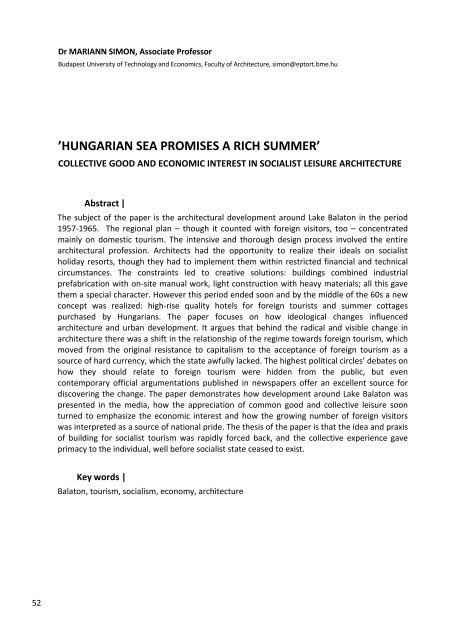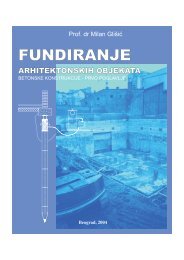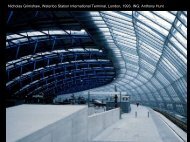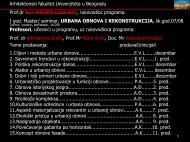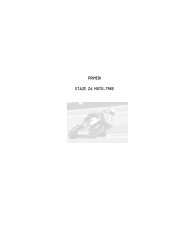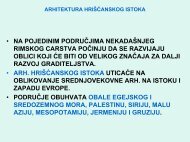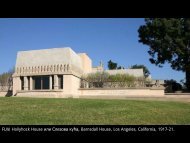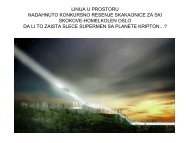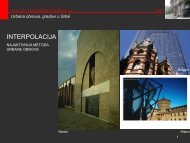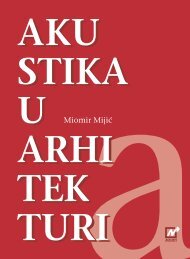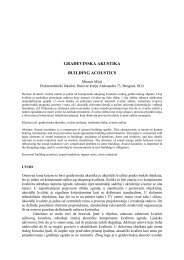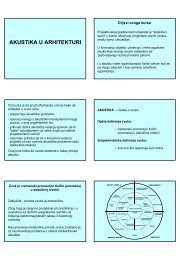Architecture and Ideology
Architecture and Ideology
Architecture and Ideology
You also want an ePaper? Increase the reach of your titles
YUMPU automatically turns print PDFs into web optimized ePapers that Google loves.
52<br />
Dr MARIANN SIMON, Associate Professor<br />
Budapest University of Technology <strong>and</strong> Economics, Faculty of <strong>Architecture</strong>, simon@eptort.bme.hu<br />
’HUNGARIAN SEA PROMISES A RICH SUMMER’<br />
COLLECTIVE GOOD AND ECONOMIC INTEREST IN SOCIALIST LEISURE ARCHITECTURE<br />
Abstract |<br />
The subject of the paper is the architectural development around Lake Balaton in the period<br />
1957‐1965. The regional plan – though it counted with foreign visitors, too – concentrated<br />
mainly on domestic tourism. The intensive <strong>and</strong> thorough design process involved the entire<br />
architectural profession. Architects had the opportunity to realize their ideals on socialist<br />
holiday resorts, though they had to implement them within restricted financial <strong>and</strong> technical<br />
circumstances. The constraints led to creative solutions: buildings combined industrial<br />
prefabrication with on‐site manual work, light construction with heavy materials; all this gave<br />
them a special character. However this period ended soon <strong>and</strong> by the middle of the 60s a new<br />
concept was realized: high‐rise quality hotels for foreign tourists <strong>and</strong> summer cottages<br />
purchased by Hungarians. The paper focuses on how ideological changes influenced<br />
architecture <strong>and</strong> urban development. It argues that behind the radical <strong>and</strong> visible change in<br />
architecture there was a shift in the relationship of the regime towards foreign tourism, which<br />
moved from the original resistance to capitalism to the acceptance of foreign tourism as a<br />
source of hard currency, which the state awfully lacked. The highest political circles’ debates on<br />
how they should relate to foreign tourism were hidden from the public, but even<br />
contemporary official argumentations published in newspapers offer an excellent source for<br />
discovering the change. The paper demonstrates how development around Lake Balaton was<br />
presented in the media, how the appreciation of common good <strong>and</strong> collective leisure soon<br />
turned to emphasize the economic interest <strong>and</strong> how the growing number of foreign visitors<br />
was interpreted as a source of national pride. The thesis of the paper is that the idea <strong>and</strong> praxis<br />
of building for socialist tourism was rapidly forced back, <strong>and</strong> the collective experience gave<br />
primacy to the individual, well before socialist state ceased to exist.<br />
Key words |<br />
Balaton, tourism, socialism, economy, architecture


